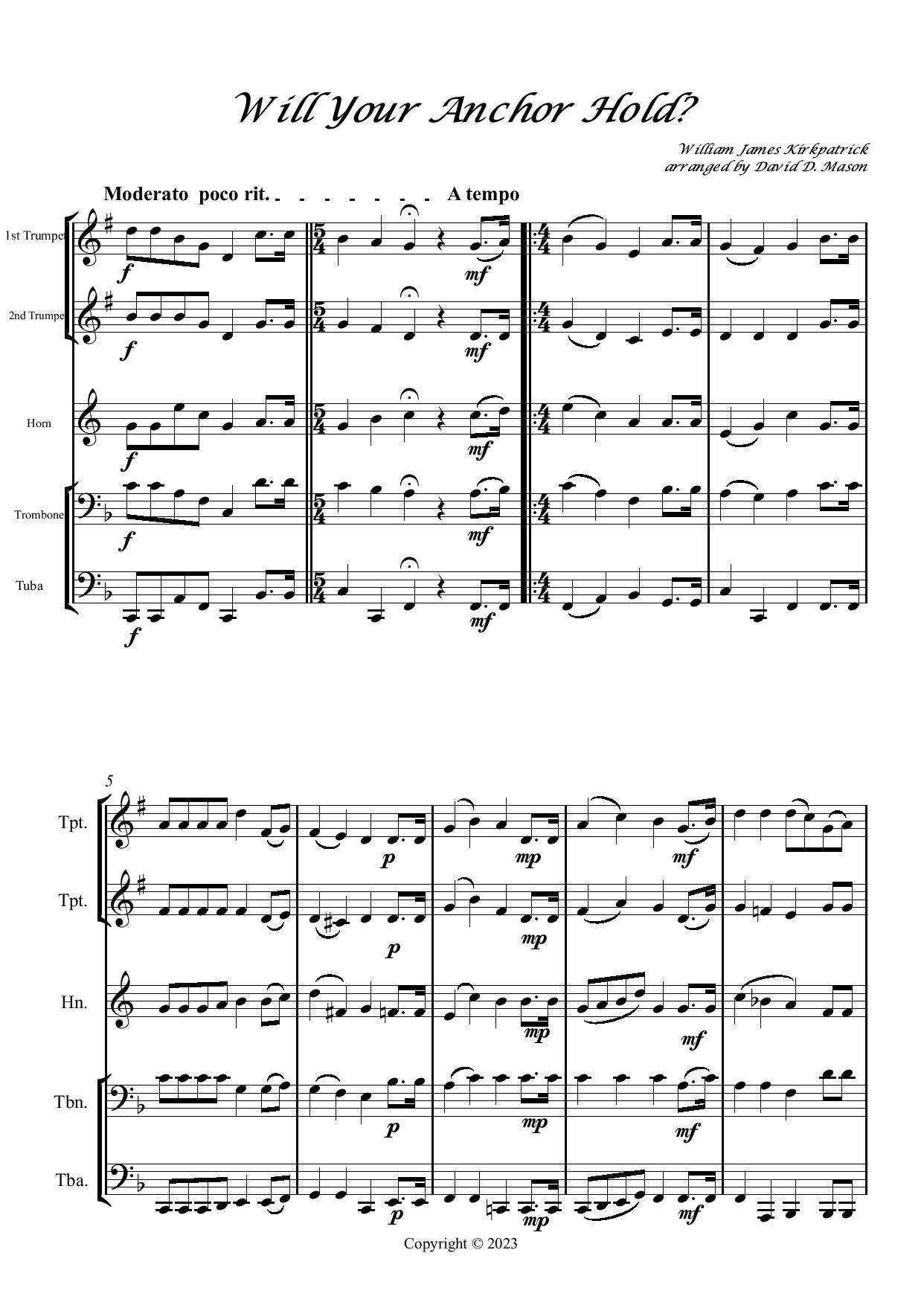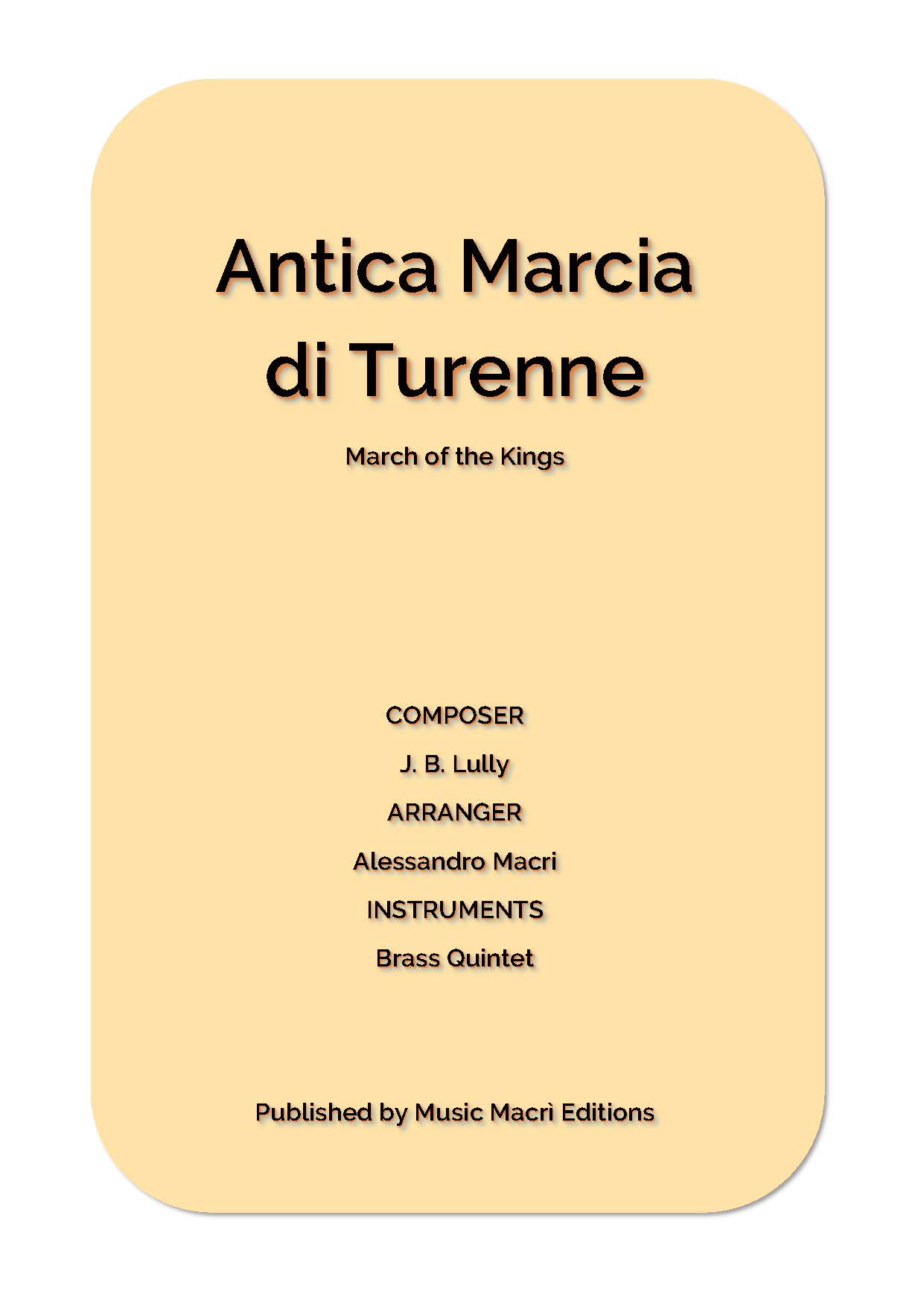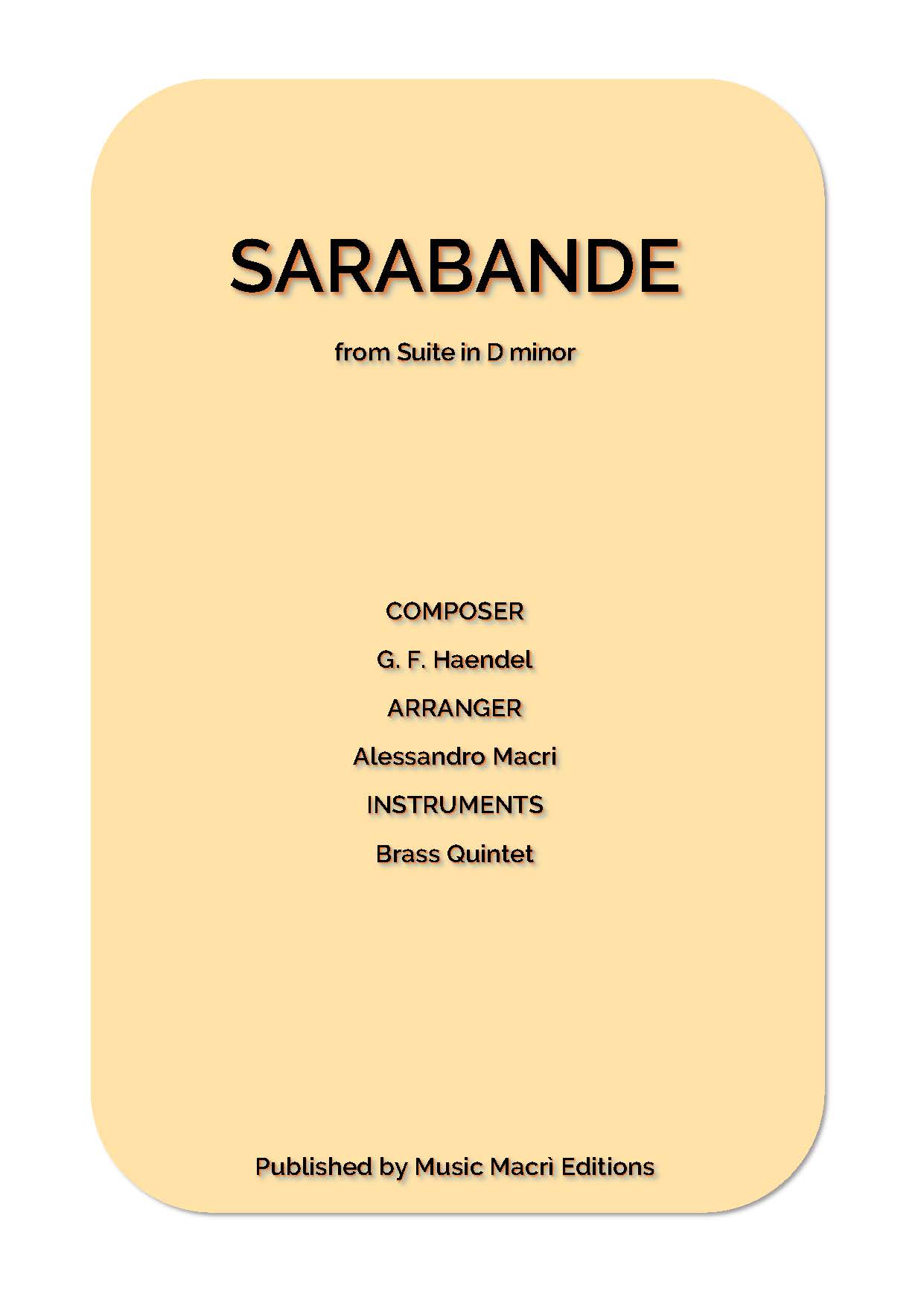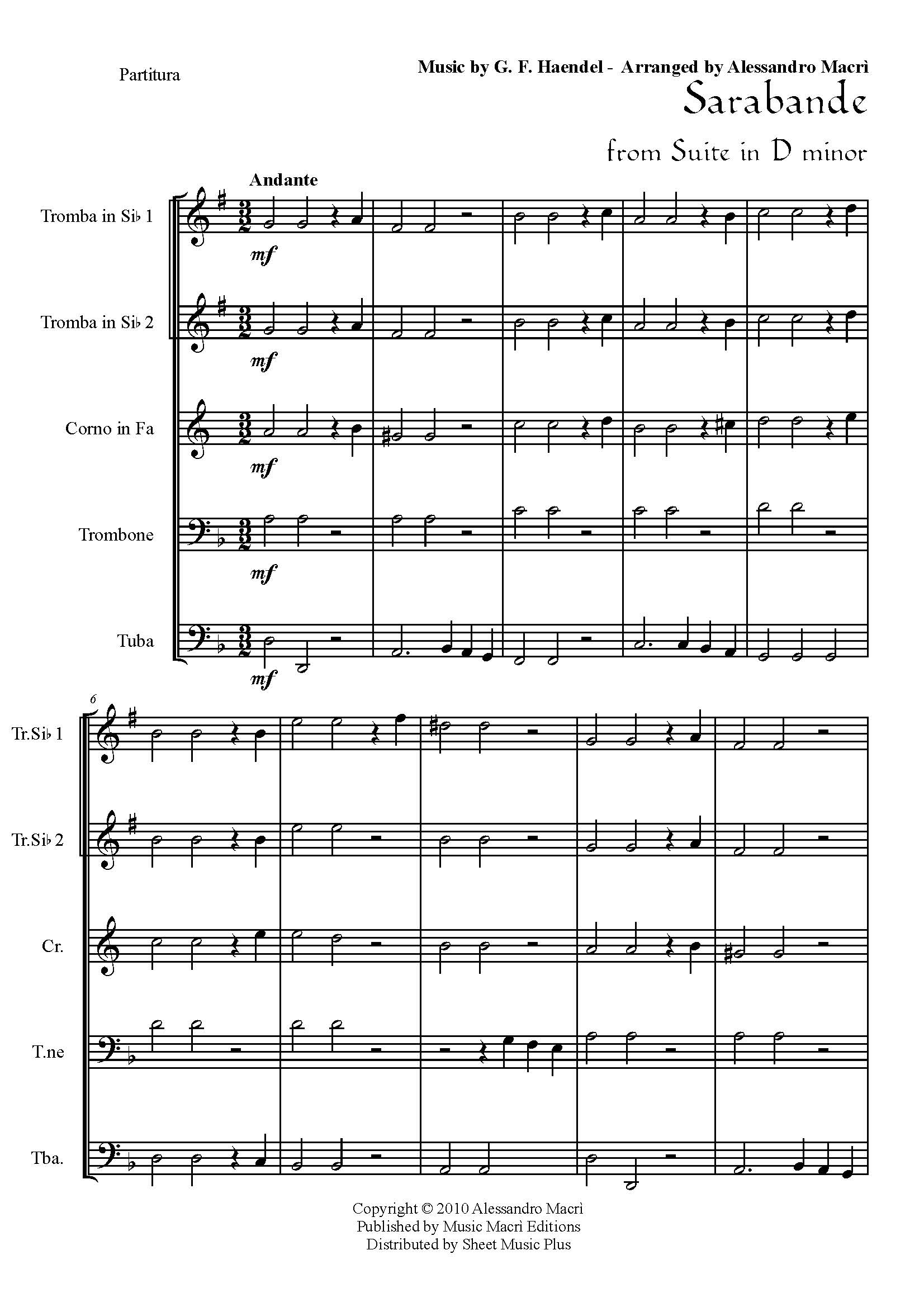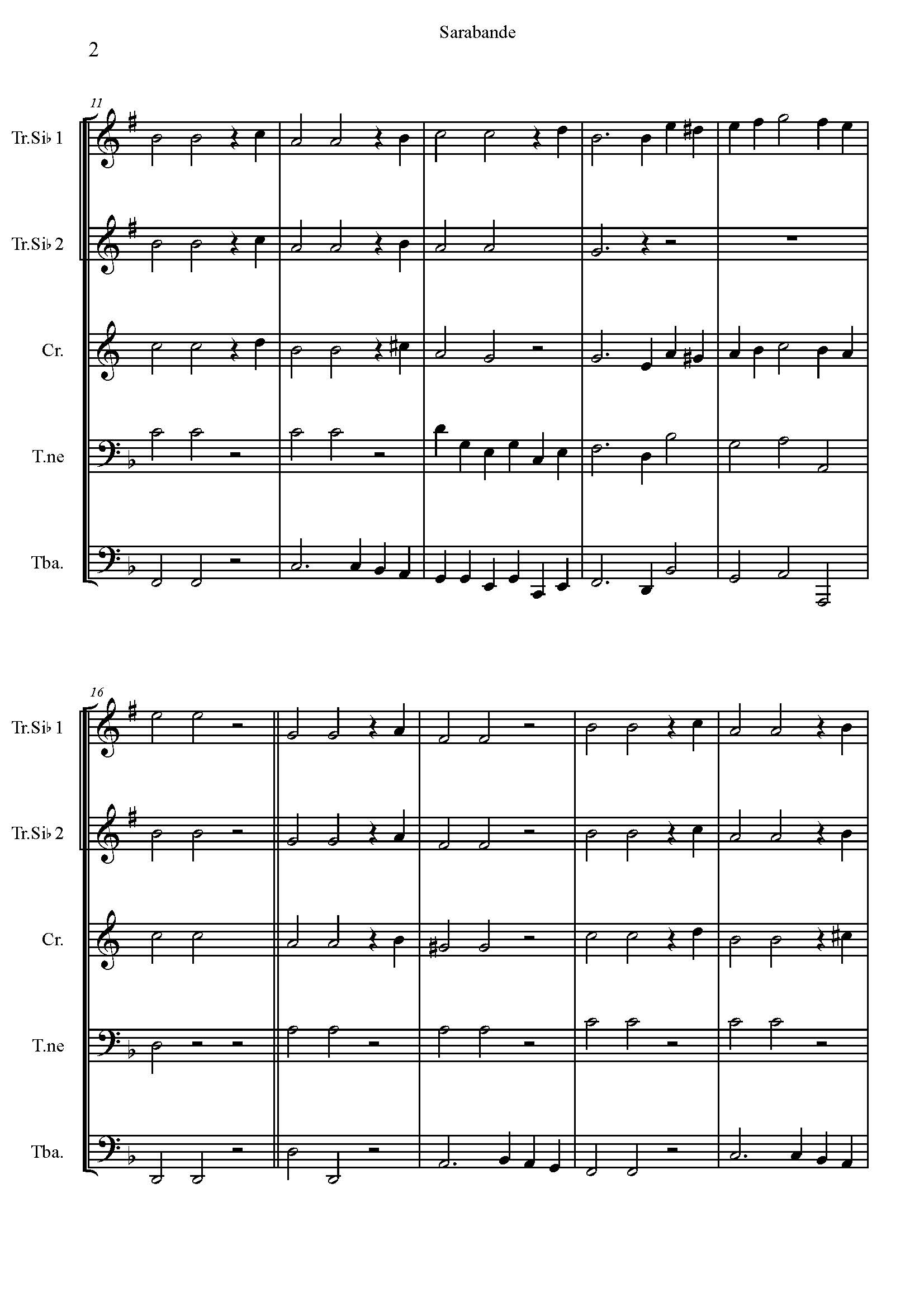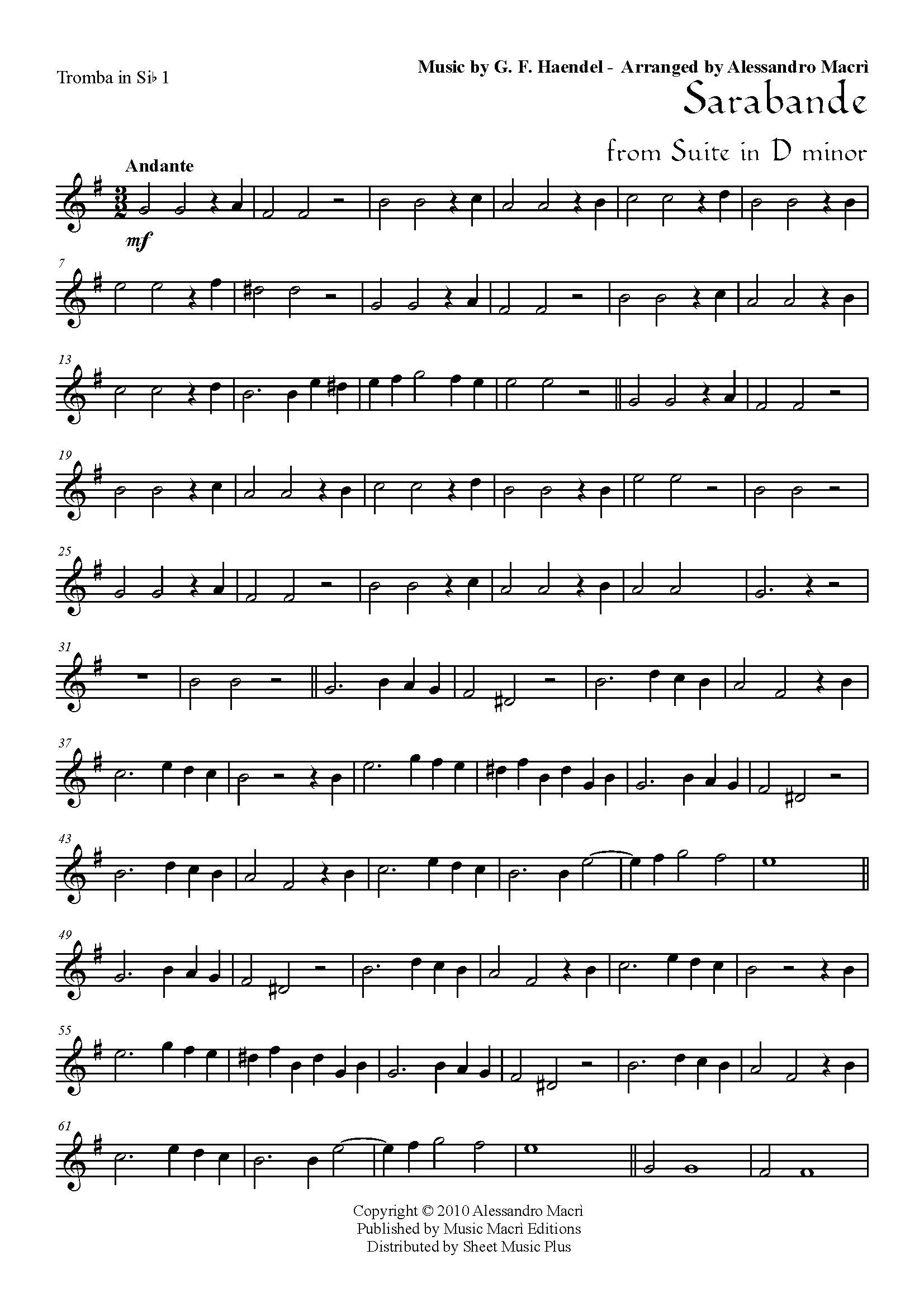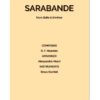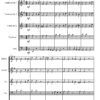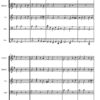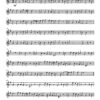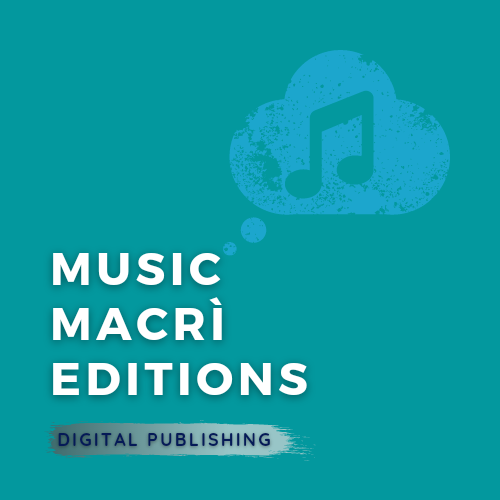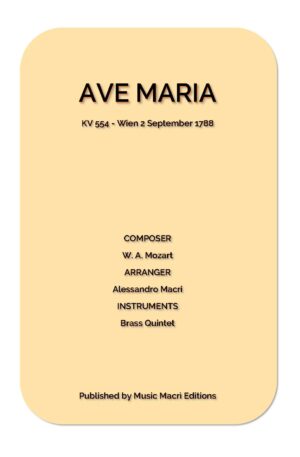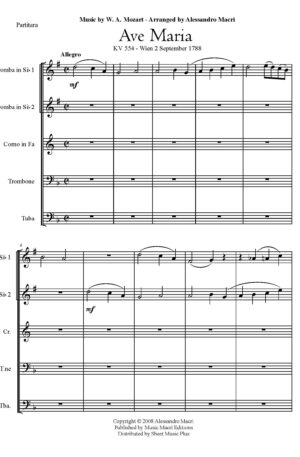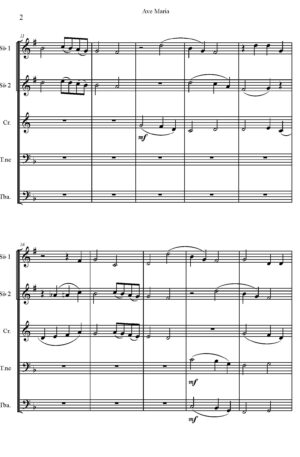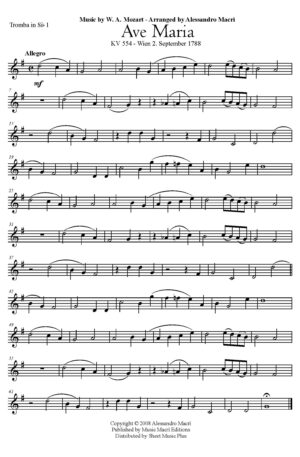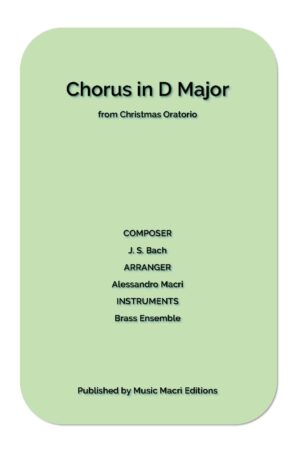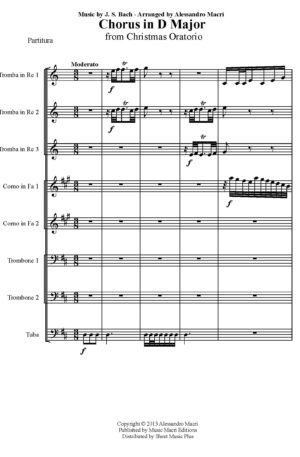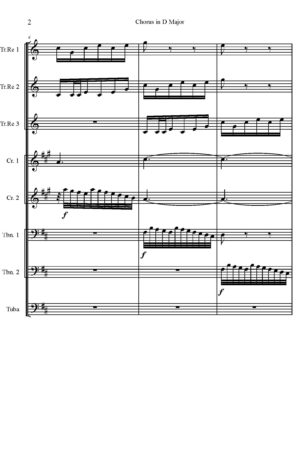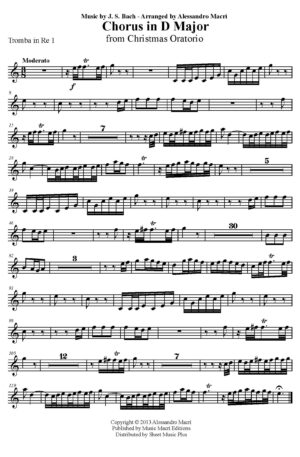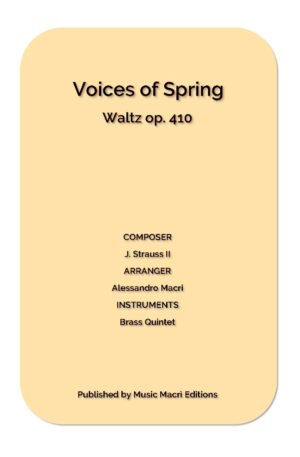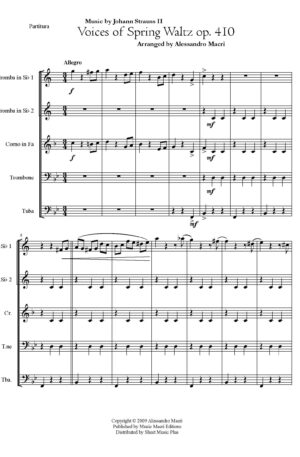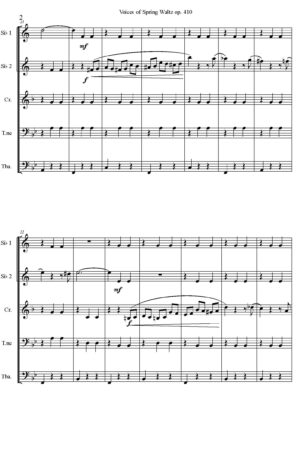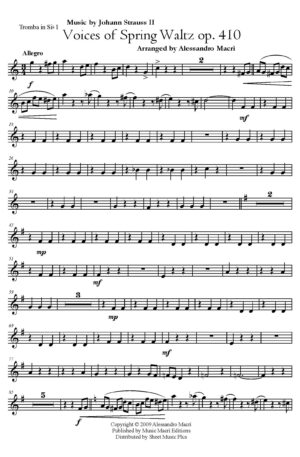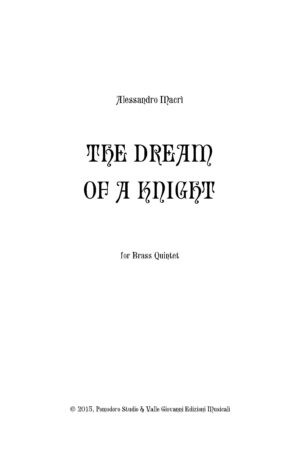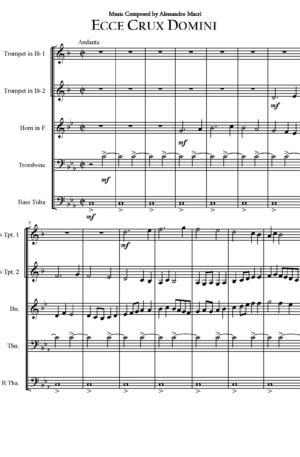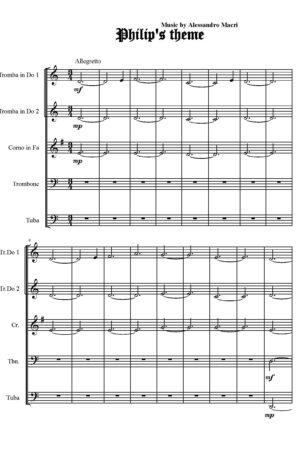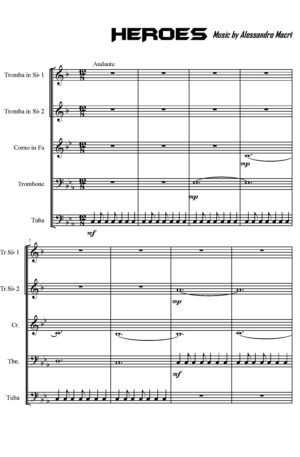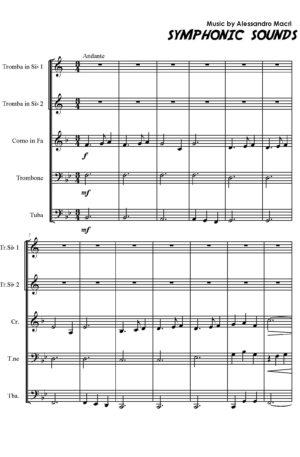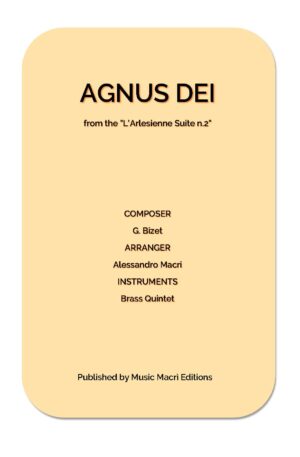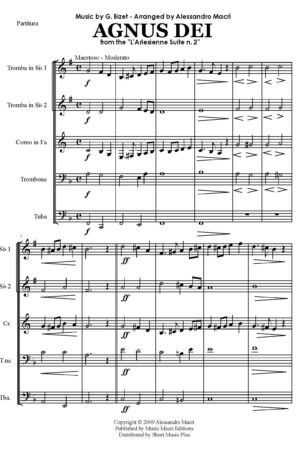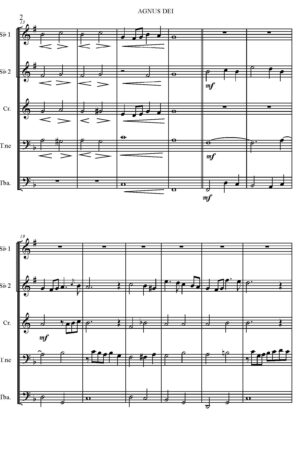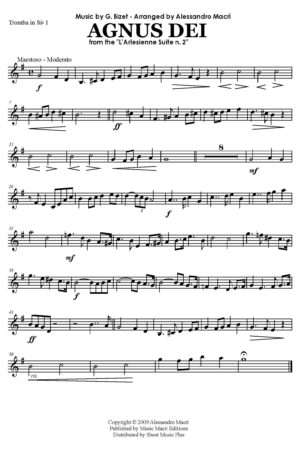No products in the cart.
Sale!
Sarabande from Suite in D minor by G. F. Händel
Categories: Baroque Period, Brass Quintet
$10.00 Original price was: $10.00.$9.00Current price is: $9.00.
0 out of 5
Description
A Sarabande, belonging to the Harpsichord Suite in D minor number 11 (HWV 437), is one of the most beautiful and famous musical pieces by Georg Friedrich Händel, one of the most illustrious German musicians of the Baroque period. The fourth movement of the Handelian Suite became known to the general public when the American composer Leonard Rosenman (1924-2008) rearranged it by inserting strings and timpani into the performance; in this way it was inserted by Stanley Kubrick in his cinematic masterpiece Barry Lyndon (1975). Here he can be heard in the most exciting and enthralling moments, where he takes on a decisive role, transmitting an atmosphere of incredible charm to the scenes. Probably Handel, when he composed this unforgettable melody (written between 1703 and 1706), was inspired by an instrumental work by Arcangelo Corelli: La Follia, or a sonata (with variations on the theme of the same name) inserted as the last of the Op . 12 (1900) by the Italian musician. For the writing of the aforementioned piece, Corelli had in turn taken inspiration from a Portuguese musical theme of popular origin, born between the 16th and 17th centuries.
a Sarabanda, appartenente alla Suite per clavicembalo in Re minore numero 11 (HWV 437), è uno dei brani musicali più belli e famosi di Georg Friedrich Händel, musicista tedesco tra i più illustri del periodo barocco. Il IV movimento della Suite handeliana fu conosciuto dal grande pubblico quando il compositore statunitense Leonard Rosenman (1924-2008) lo riarrangiò inserendo nell’esecuzione archi e timpani; in tal guisa fu inserito da Stanley Kubrick nel suo capolavoro cinematografico Barry Lyndon (1975). Qui lo si può ascoltare nei momenti più emozionanti e trascinanti, dove assume un ruolo determinante, trasmettendo alle scene un’atmosfera di un fascino incredibile. Probabilmente Händel, quando compose questa indimenticabile melodia (scritta tra il 1703 ed il 1706), s’ispirò ad un’opera strumentale di Arcangelo Corelli: La Follia, ovvero una sonata (con variazioni sull’omonimo tema) inserita quale ultima dell’Op. 12 (1900) del musicista italiano. Per la stesura del brano citato, Corelli aveva preso a sua volta spunto da un tema musicale portoghese di origine popolare, nato tra il XVI ed il XVII secolo.
Additional information
| Ensemble Type | |
|---|---|
| Genre | Baroque Period |
General Enquiries
There are no enquiries yet.
Related products
-
- Sale!
Ave Maria by Mozart
-
$10.00Original price was: $10.00.$7.00Current price is: $7.00. - Add to cart0 out of 5Add to WishlistAlready In WishlistAdd to Wishlist
-
Chorus in D Major from Christmas Oratorio by J. S. Bach
- $25.00
- Add to cart0 out of 5Add to WishlistAlready In WishlistAdd to Wishlist
-
Voices of Spring Waltz op. 410 by J. Strauss II
- $20.00
- Add to cart0 out of 5Add to WishlistAlready In WishlistAdd to Wishlist
-
The dream of a Knight – Six Original Compositions
- $10.00
- Add to cart0 out of 5Add to WishlistAlready In WishlistAdd to Wishlist
-
- Sale!
AGNUS DEI from the L’ Arlesienne Suite n. 2
-
$10.00Original price was: $10.00.$6.00Current price is: $6.00. - Add to cart0 out of 5Add to WishlistAlready In WishlistAdd to Wishlist

